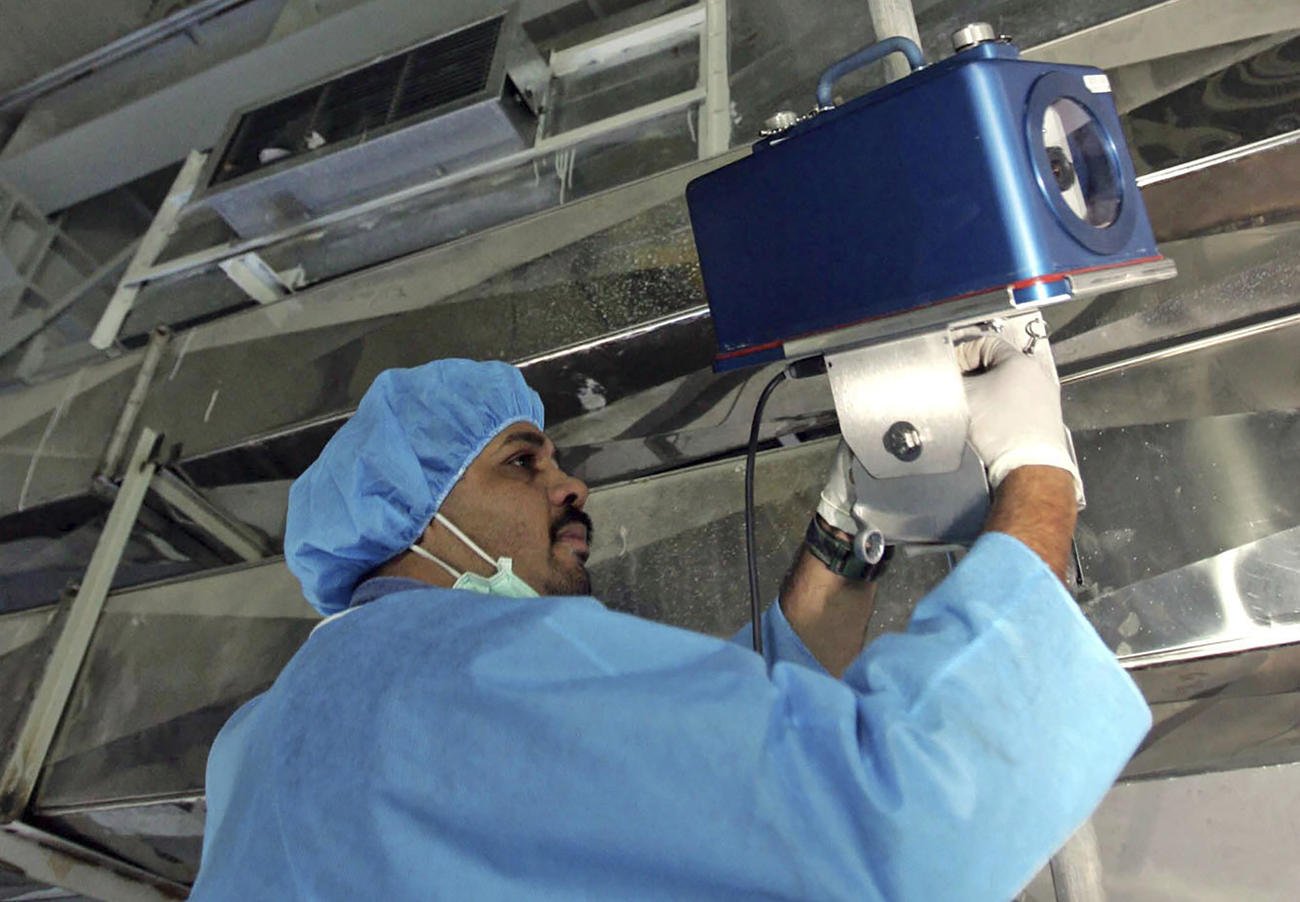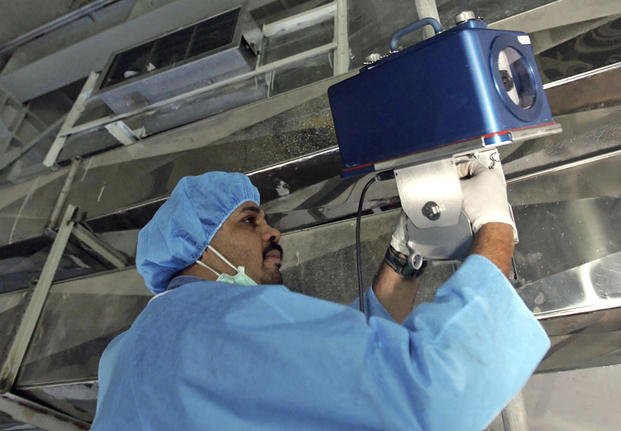

TEHRAN, Iran — Iran turned off two surveillance cameras of the United Nations’ nuclear watchdog that monitored one of its atomic sites, state television reported Wednesday.
The report did not identify the site, but it appeared to be a new pressure technique by Tehran as Western nations seek to censure Iran at a meeting this week of the International Atomic Energy Agency.
The Iranian state television report described the two cameras as monitoring “OLEM enrichment levels and flowmeters.” That appeared to refer to the IAEA’s Online Enrichment Monitors, which watch the enrichment of uranium gas through piping at enrichment facilities.
Iran currently is enriching at both its Fordo and Natanz underground nuclear sites.
“The Islamic Republic of Iran has so far had extensive cooperation with the International Atomic Energy Agency,” state TV said in its report. “Unfortunately, the agency, without considering this cooperation … not only did not appreciate this cooperation, but also considered it as a duty of Iran.”
Tehran said its civilian nuclear arm, the Atomic Energy Organization of Iran, monitored the shutdown of the cameras. It said 80% of the existing cameras are IAEA “safeguard” cameras and they will continue to operate as before.
Iran and world powers agreed in 2015 to the nuclear deal, which saw Tehran drastically limit its enrichment of uranium in exchange for the lifting of economic sanctions. In 2018, then-President Donald Trump unilaterally withdrew America from the accord, raising tensions across the wider Middle East and sparking a series of attacks and incidents.
The Vienna-based IAEA declined to immediately comment.
Iran already has been holding footage from IAEA surveillance cameras since February 2021 as a pressure tactic to restore the atomic accord.
Iran and world powers agreed in 2015 to the nuclear deal, which saw Tehran drastically limit its enrichment of uranium in exchange for the lifting of economic sanctions. In 2018, then-President Donald Trump unilaterally withdrew America from the accord, raising tensions across the wider Middle East and sparking a series of attacks and incidents.
Talks in Vienna over Iran’s tattered nuclear deal have been stalled since April. Since the deal’s collapse, Iran runs advanced centrifuges and has a rapidly growing stockpile of enriched uranium. Nonproliferation experts warn Iran has enriched enough up to 60% purity — a short technical step from weapons-grade levels of 90% — to make one nuclear weapon if it choose.
Iran insists its program is for peaceful purposes, though United Nations experts and Western intelligence agencies say Iran had an organized military nuclear program through 2003.
Building a nuclear bomb would still take Iran more time if it pursued a weapon, analysts say, though they warn Tehran’s advances make the program more dangerous. Israel has threatened in the past it will carry out a preemptive strike to stop Iran — and already is suspected in a series of recent killings targeting Iranian officials.
___
Gambrell reported from Dubai, United Arab Emirates.
© Copyright 2022 Associated Press. All rights reserved. This material may not be published, broadcast, rewritten or redistributed.
